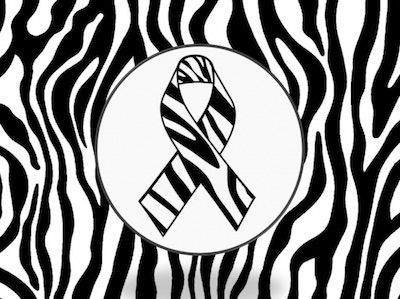Learn about the "zebras" of the cancer world
The 2015 Neuroendocrine Tumor (NET) Patient Regional Meeting is coming up on Saturday, Aug. 29. NET patients and caregivers are invited for an afternoon of networking, information sharing and support—all tailored to the unique needs of the NET patient community.
Dr. Renuka Iyer, Co-Director of the Liver and Pancreas Tumor Center and Section Chief for Gastrointestinal Oncology, shares more about this event in the Q&A below. Spread the word to patients and caregivers you know.
Q: What’s new for this year’s meeting?
A: At this year’s meeting, we will stage a multi-disciplinary conference with real cases. Attendees will get a chance to see our team of doctors and care team members in action!
Q: How many participants do you expect to attend the NET Patient Regional Meeting?
A: We are happy to have welcomed more than 100 people to each of the past two years’ meetings.
Q: How would you describe a neuroendocrine tumor to someone who has never heard of this type of tumor?
A: A neuroendocrine tumor is a rare type of tumor of the signaling cells of our body that generally grows slowly and produces hormones.
Q: From a patient’s perspective, what’s different about neuroendocrine tumors as opposed to other types of tumors?
A: Patients can live with neuroendocrine tumors for a long time, and they need a variety of different doctors (specialists) to sequence treatments to help ensure the highest quality care.
Q: Are there signs and symptoms of neuroendocrine tumors?
A: Flushing and diarrhea, abdominal pain and wheezing are common symptoms. Many people are mistaken to have irritable bowel or anxiety, or have frequent emergency room visits due to partial bowel obstructions. In fact, because neuroendocrine tumors get misdiagnosed so often, the color of the wrist band for them is zebra stripes to remind us that “when you hear hooves, it isn’t always a horse as you would expect.” With these patients, you need to be thinking of rare things, like zebras.
Q: Who is on the multidisciplinary team for neuroendocrine tumor care at Roswell Park?
A: Our Neuroendocrine Carcinoid Team is listed here. (A carcinoid tumor is a type of neuroendocrine tumor, thus they are treated by the same team.) We have a dedicated team, and for this cancer you need a team to have the best outcomes. We know how to optimally sequence therapies to maintain quality of life. We work with community surgeons, oncologists, gastroenterologists, endocrinologists and primary care doctors to take care of these patients and bring the newest trials and technologies to them, so patients from WNY do not need to travel anywhere else. Incredible treatments are available to people within our community right in their own backyards.
Q: Would you like to share anything else?
A: At Roswell Park, we believe that with a multidisciplinary team, knowledge, resources and support, neuroendocrine tumor patients can become survivors and enjoy long, productive lives in spite of cancer. Maryann Wahmann, a NET advocate and survivor, who is also the President of Neuroendocrine Cancer Awareness Network, will be our guest of honor. We hope patients and caregivers will take advantage of this program.
